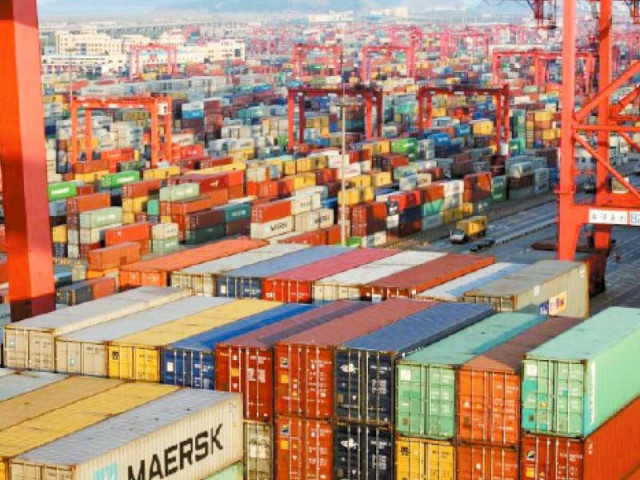Pakistan-Turkey trade on the rise
Surpasses $1.1b in 2021 on back of efficient land-based shipping

The efficient land-based shipping between Turkey and Pakistan has improved bilateral trade, as it surpassed the $1.1 billion level during 2021. Talking to The Express Tribune, Federation of Pakistan Chambers of Commerce and Industry (FPCCI) President Irfan Iqbal Sheikh underlined that the bilateral trade volume between Pakistan and Turkey “is set to climb to new heights, as it has reclaimed the lost ground successively”.
“The bilateral trade has surpassed $1.1 billion over the last one year, after a decadelong gap,” he said, adding that the trend was pointing towards further increase in trade volumes progressively. He pointed out that the cargoes under land-based shipping through the Convention on International Transport of Goods (TIR Convention) took less than 15 days to reach Turkey. “However, sea-based cargoes take more than 40 days.” He was of the view that Pakistan and Turkey “enjoy strong people-to-people, business-to-business and chamber-to-chamber linkages”.
Sheikh revealed that a strategic economic framework (SEF) would soon be signed with Turkey. Subsequently, the two countries would swiftly proceed to the Preferential Trade Agreement (PTA) and Free Trade Agreement (FTA), he said, adding that these agreements would release the true potential of trade and economic cooperation between the two sides. Emphasising the importance of regional connectivity, Pakistan Stock Exchange (PSX)’s former director Zafar Moti recalled that in 1964, Pakistan and Turkey established a multi-governmental organisation called Regional Cooperation for Development (RCD) to promote regional trade.
“However, RCD did not succeed in achieving its goals” due to various reasons, he said. Pakistan also kept focusing on other regions such as the United States and Middle East, “but now we need to diversify our export destinations”, he underlined. “Regional trade is important and land routes can play a vital role in improving trade among regional countries,” he said. “Land route provides us with unlimited possibilities,” he remarked, adding that through train transit, Pakistan could send more goods at a lower cost.
He mentioned that Istanbul could provide Pakistan access to Europe as well. “Pakistan has never exported to eastern Europe such as Albania, Bulgaria, Estonia and Latvia,” he said, adding that these countries were tourist destinations, so “their economies are better than many other countries, thus Pakistan can earn foreign exchange”. “Pakistan still has cheap labour from which it can benefit,” he said.
He highlighted that the political and economic restrictions on Turkey were likely to end in 2023. After which, Turkey would emerge as an important destination for exports, thus Pakistan should focus more on the route, he said. Employers’ Federation of Pakistan (EFP) President Ismail Suttar recalled that Pakistan exported around $394 million worth of products to Turkey in 2020. The main products that Pakistan exported to Turkey were electric generating sets ($92 million), heavy pure woven cotton ($79.7 million) and non-retail pure cotton yarn ($31.9 million), according to OEC.
“The products exported are in high demand, but in order to expand shipments Pakistan must focus on unconventional products,” he said. “It is important to focus and analyse the competitors in the region to check which products Pakistan is capable of exporting but is not, due to the lack of diversification,” he emphasised. “Pakistan’s FTA with Turkey eliminates 85% of tariffs, which is a clear indicator of prosperity for the two countries and is expected to enhance trading opportunities,” he said.
“Hence, taking advantage of the situation, trade exhibitions and business-to-business programmes will add value to the export potential,” Suttar underlined. With land-based routes, the trade efficiency has increased, which would further “grow manifold when the train track is fully operational”, he added.



















COMMENTS
Comments are moderated and generally will be posted if they are on-topic and not abusive.
For more information, please see our Comments FAQ